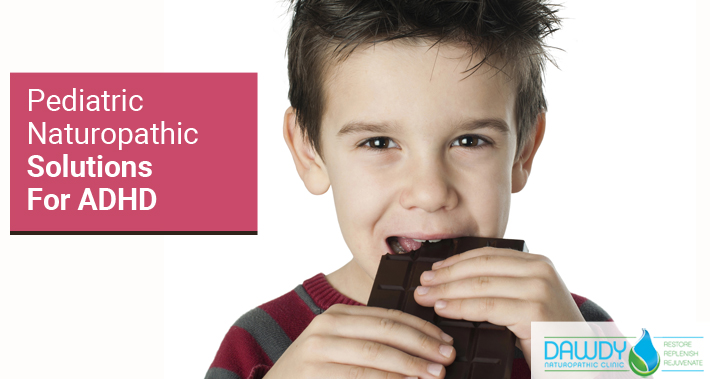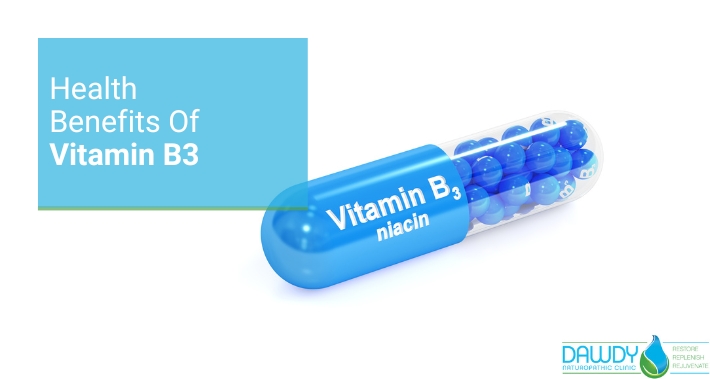Pediatric Naturopathic Solutions For ADHD
As a parent, you want what’s best for your child.
For many parents, finding out your child has ADHD can be worrisome.
It might conjure images of overactive children having difficulty concentrating and paying attention in class.
Kids who are reprimanded for disturbing others and getting into trouble school at because of it.
The little girl who gets in trouble for always talking to her friends, or interrupting others.
In adults, ADHD might look like someone who keeps missing important deadlines because of difficulty with time management.
Or feeling depressed because you’re not as good at things that you think should be second nature by now.
Many parents who have children with ADHD are looking for alternatives to the common pharmaceuticals which are typically prescribed.
As a pediatric naturopathic doctor in Ottawa I can help you find natural solutions to help manage your child’s ADHD.
I’m Dr. Kimberly Dawdy, ND, and on today’s naturopathic blog we’re going to look at ADHD.
We’ll talk about what it is, symptoms, and some natural ways to manage its symptoms.
What Is ADHD?
Attention deficit hyperactivity disorder, usually shortened to “ADHD,” is a neurodevelopmental diagnosis.
That means it’s a difference in how the brain develops.
It can result in poor impulse control, difficulty concentrating, and hyperactivity.
ADHD can lead to issues at school for children.
They might get in trouble for not paying attention, disrupting other kids in class, or not completing tasks and homework on time.
How To Tell If You Or Your Child Has ADHD
There are actually a few different types of ADHD.
These include hyperactive impulsive, inattentive, as well as a combination of both of these.
The signs and symptoms will vary depending on which type of ADHD.
Let’s have a closer look at each type.
Predominantly Hyperactive Impulsive
Someone with hyperactive impulsive ADHD might show behaviors such as:
- Having trouble with turn taking activities
- Talking a lot
- Fidgeting
- Difficulty sitting still for extended periods (such as during class or in meetings)
- Finishing other people’s sentences
- Not waiting until someone is done asking a question to answer it
- Often interrupting others
- Taking and using other people’s things without asking
- Consistently feeling restless
- Unable to do tasks which require sitting quietly
These symptoms may present in ways such as:
- Impulsive shopping decisions
- Trouble with emotional regulation
- A constant need to move around, or pace back and forth
- Being impatient in long lines or while waiting in traffic
Predominantly Inattentive
Inattentive ADHD is predominately characterized by difficulty focusing.
It doesn’t show many signs of impulsivity or hyperactivity.
Some indicators can include:
- Being unable to organize daily tasks
- Forgetfulness
- Poor time management
- Often losing items
- Having trouble concentration
- Missing details and making lots of mistakes while working or studying
- Difficulty following directions to complete tasks
- Being sidetracked easily
- Being easily distracted by things happening in their environment
- Procrastination of tasks which use more mental energy
- Having trouble focusing on reading, listening to others, and during conversations
These symptoms may show up in different ways, for you or your child such as:
- Being unable to keep track of work or school assignments
- Low accuracy of work
- Procrastinating on assignments or chores
- Having trouble keeping track of dates, such as anniversaries and birthdays
- Late payment of bills
Combined Hyperactive Impulsive And Inattentive
Symptoms of combined hyperactive impulsive and inattentive ADHD will show symptoms from both of the above lists.
What Causes ADHD?
At present, the precise cause of ADHD is still uncertain.
Its origins are believed to be neurological, and possibly genetic.
Some research has suggested that people with ADHD have a lower volume of grey matter in their brains than those who don’t.
Grey matter is involved in:
- Self control and regulation
- Control of muscles
- Speech
- Decision making
Researchers also believe that ADHD is due to a reduction in dopamine.
Dopamine is a neurotransmitter which is involved with regulation of emotional responses.
Can You Grow Out Of ADHD?
ADHD is generally diagnosed in children, which might lead some people to wonder if it’s something you can “grow out of”.
However, although the way symptoms present can change, ADHD isn’t generally something people will grow out of.
Fewer than ten percent of children with ADHD will fully outgrow it as they enter into adulthood.
Approximately eleven percent of children with ADHD will have symptoms which stay stable throughout their lives.
The remainder will have fluctuations with symptoms being more or less pervasive at different points in their development.
Naturopathic Treatments For ADHD
There are a lot of pharmaceuticals which can be used to manage ADHD.
These, however, can also come with long term risks such as high blood pressure, and seizures.
There is also a high potential for developing addiction to the medication.
However, there are a number of naturopathic interventions which can help with symptoms.
In this section we’ll review some of these.
1. Supplement With Zinc
People with ADHD may have lower levels of zinc than those who don’t.
Zinc is a mineral which is important for brain health.
Low levels of zinc have been linked to ADHD symptoms such as delayed brain development, and a low attention span.
Dietary sources of zinc include:
- Oysters
- Crab
- Beef
- Pork
- Lobster
- Chickpeas
- Cashews
- Oats
- Hemp seeds
- Tofu
- Pumpkins
However, zinc supplementing is an option if your child has a condition that makes absorbing it difficult.
That can include a digestive disorder like Crohn’s disease or ulcerative colitis.
RELATED: Natural Digestive Health Clinic
2. Get Enough Vitamin D
Supplementing with vitamin D has been found to be helpful for increasing brain function and improving attention.
Low levels of vitamin D have been associated with a greater likelihood of ADHD in children.
Vitamin D is tricky, since the best source of it is actually from the Sun.
And if you live in Ottawa, you can only get vitamin D for a few months when it’s warm enough to create sweat on your skin.
That’s why most supplementing is often recommended.
3. Get Enough Omega-3 Fatty Acids
Omega-3 fatty acids and ADHD have an interesting relationship.
Dr. Sheila Dyer, a Toronto naturopathic doctor, wrote a great article outlining how this works.
From what it seems, omega-3s seem to have only a limited effect on managing with ADHD symptoms.
However, the symptoms of omega-3 deficiency are similar to those of ADHD.
That includes inattentiveness, memory difficulties, and difficulty concentrating.
So if your child isn’t getting enough omega-3s through their diet, it may seem like they have ADHD when they really don’t.
And if they do have ADHD, omega-3 deficiency can make their symptoms much worse.
However, there’s more to it.
Omega-3s can reduce inflammation in your brain, which can help improve dopamine function.
So in that regard, it can help.
But that’s only the case if you’re deficient in omega-3s.
There’s not yet been conclusive research to suggest high dose omega-3 supplementing can help with ADHD.
4. Get Enough Iron
A 2004 study found that 84% of children with ADHD were iron deficient.
Compare that with 18% of kids without ADHD, and that’s a major difference.
Getting enough iron has been connected to learning improvements in children with ADHD.
And, like omega-3s, the signs of iron deficiency are similar to ADHD.
Dietary sources of iron include:
- Light canned tuna
- Poultry
- Mussels
- Clams
- Oysters
- Beef
- Organ meats
- Chicken and beef liver
- Spinach
- Potato skins
- Beans
- Lentils
- Dark chocolate
5. Lifestyle Changes
There are a number of lifestyle factors which can impact ADHD.
Some strategies which can help manage ADHD symptoms can include:
- Reducing time on devices, such as gaming systems or watching television
- Getting more exercise
- Using a defined schedule
- Spending more quality time with family, and giving children individualized attention
Book Your Appointment With Dr. Kimberly Dawdy, ND, Today
Is ADHD getting in the way of your child’s performance in school?
Do they have trouble making and maintaining friendships because of their behaviour?
Are you worried about the side effects of pharmaceutical interventions for ADHD and want to look at more natural ways to manage the symptoms?
I’m Dr. Kimberly Dawdy, ND, a naturopathic doctor in Ottawa south, and I can help.
Book your appointment with me at Dawdy Naturopathic today.
Yours in Health,
Dr. Kimberly Dawdy, ND
Dawdy Naturopathic Clinic
6899 Sunset Blvd,
Greely, ON K4P 1C5
-https://g.page/dawdynaturopathicclinic
Dawdy Naturopathic Clinic offers a variety of naturopathic health solutions for individuals and families in Ottawa and the surrounding area.





